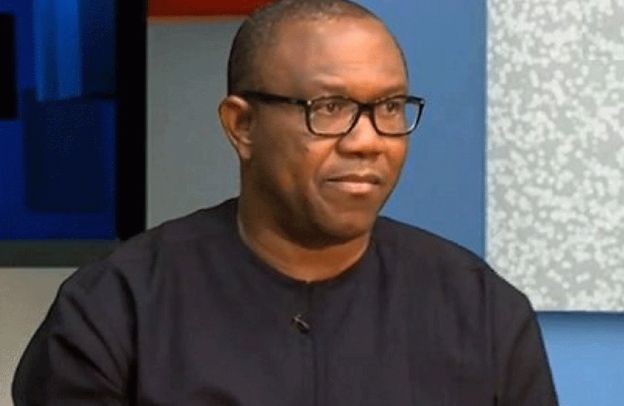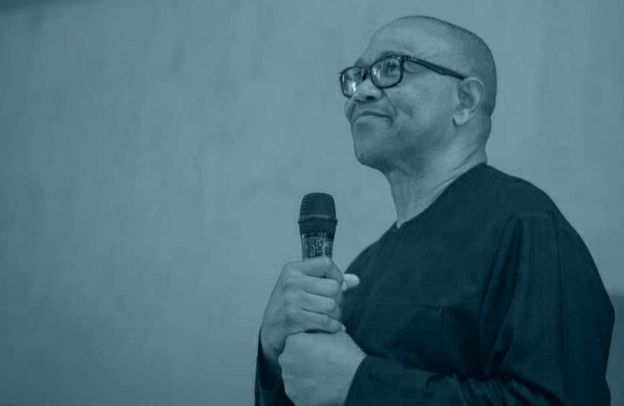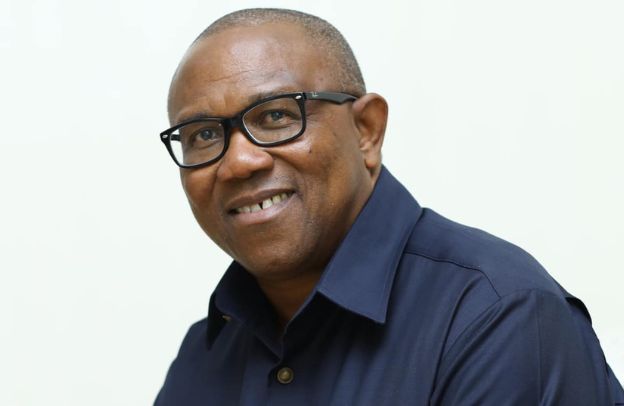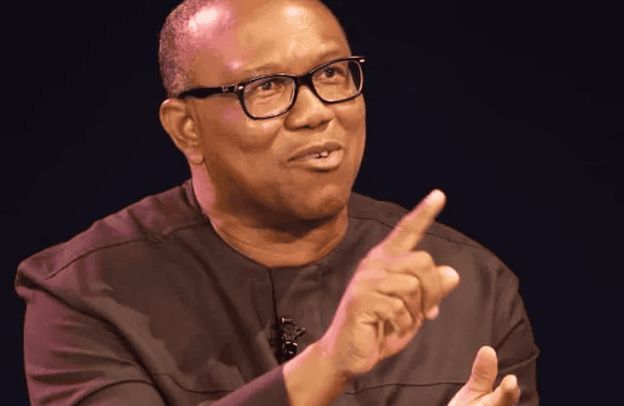Nigeria Security Issues And Peter Obi’s Ideas to Control it

Security issues are one of the huge problems that the Nigerian government has failed to tackle aside from the downturn economy- and this has produced fear and anxiety in the lives of the citizenry. The waves of this insecurity grew fiercer with each passing year and in so many cases it had led to forced migration from the most insecure areas to a bit more secure part of the country.
Want to learn more about storytelling? Start by downloading the first chapter of The Storytelling Series for Small Businesses.
Several governments had given their word on ways to go about sorting this nerve-wracking issue that had dispersed not only in the North but to all parts of Nigeria, yet little to no efforts had been tangled together to bring forth a solution.
Typically, Buhari outlined measures he would take to put an end to this growing issue. However, it’s no surprise to Nigerians that instead of those listed measures, the government not only abandoned its promise but shifted its focus from the security crises.
This led to several thousands of deaths of Nigerians. Recently, it’s not only the insurgents that wrack havoc and maim the lives of the civilians but custodians of law- the police and military- have added to the untold killing of people.
Worse yet, the government never put its ears on the ground to figure out ways to curb this problem. With the custodians of law dabbling in the killing of Civilians, it reveals how incredibly worse the insecurity in the country had become.
Different Threats to Nigeria’s Security
This lack of semblance of peace has breached the national stability and the growth of the economy even though the Nigerian government would never agree to that. One of these terror groups known as the Oil militants operates in the Oil-producing states of Cross Rivers, Abia, Delta, Rivers, etc. in the southern part of Nigeria don’t pose a threat to the lives of the locals but to the national economy.
These menacing insurgents focus more on raiding the oil wells which without a shadow of a doubt is Nigeria’s mainstay. These insurgents demand the revenue gotten from the oil which the government had in years failed to disburse to the locals of these oil-producing communities. They claim that the oils had disrupted their farmlands leading to no agricultural produce from their communities.
However, the government had not harkened to these demands, encouraging the militants to strike and destroy the oil wells, thus disconcerting the national stability-economic wise.
The Nigerian government had in no small way failed to withhold the insurgent group known as Boko Haram that had ripped the lives of many people in the Northern parts of Nigeria. The term “Boko Haram” in the indigenous language means “Western education is forbidden” and was formed back in 2000 by Mohammed Yusuf.
He was unreservedly opposed to Western education because it stains the Muslim religion and forged ahead to establish local religious schools that enlighten the locals on the Islamic religion.
However, the group which was totally against politics, western education, and Christianity, began to wreak havoc starting from the Northeast region of Borno, which was their main base, after the death of Mohammed Yusuf in the police’s custody in 2009.
Their notoriety surged with the kidnap of the “Chibok girls” in 2014 spawning the fear of all Nigerians and the rally for the government’s intervention. The Buhari government laid lots of assurances that the group’s activities would be handled by the military group and the necessary measures would be taken to bring home the abducted girls and cease the operation of this group, however, little was done.
Today, the Boko Haram insurgents had grown more notorious, dispersing their raids to other states across the country, bombing, raping, and killing innocent civilians. They have ousted more than 1000 Nigerians from their homes to refugee camps and their expertise keeps growing that they have successfully managed to deter the military attack.
A lot of factors aided in the cause of this organization’s improvements. By all accounts, the organization had gained more access to weapons that outstripped that of Nigerian military troops. Expertly, they’ve taken advantage of the country’s economic downturn, poverty rate, and the mass unemployment of youths.
By all accounts, these insurgents were said to employ/ hire able-bodied youths looking for opportunities to earn a living and make something out of their lives. Thence, they care for these youths and give them a chance the government hadn’t bothered to offer them.
Why wouldn’t their organization grow more notorious if they could employ the expertise of these youths?
In that same vein, the mass corruption that littered the government system had dragged the government’s focus away from killing the motivation of these insurgents because those at the helm of power were blindly focused on the extortion of public funds.
This shift in focus of the government had negated them to tackle this issue from the root area and promote the security of lives of its citizenry. Added to the reasons for this group’s success over the years is the inability of Nigerian military troops to strategize.
Of course, the insurgents have grown accustomed to not only the terrain of the region they operate but also to the strategy of the Nigerian military government to launch an attack on them. This had overlapped the wing of the organization since its existence.
Of course, this encouraged the development of other terrorist groups, Islamic State’s West Africa (ISWA) which also operates around the northeast. Surprisingly, this ISWA had toppled over Boko Haram in terms of capacity and size.
Herdsmen who are nomadic pastoralists looking for grazing lands for their cattle are included in the groups that upset the security of the citizenry in Nigeria. Not too long ago, reports about their massive killing in various communities in the rural areas of the Southeast region such as Enugu, Anambra, Ebonyi, and even in the north-central, Benue, began to spurt on social media.
These herders’ operations had threatened the peace of various families in these parts of the country, and they tended to raid the citizenry at night either by outright gunning them down or setting their houses ablaze. The locals who had clamored for the government’s intervention had gotten little to no feedback from the government, thus leading to the exacerbation of the situation.
Of course, Kidnapping and banditry had become a trend in all parts of the country. Surprisingly, some politicians had gotten a fair share of their own experience with Bandits that kidnap them and demand a ransom. These bandits had formed the habit of infiltrating schools, churches, etc. to kidnap and demand for ransom. In most cases, they end up killing their captives even after getting their ransom. All Nigerians had had their hearts on their throats as banditry worsened at every dawn.
IPOB separatist group whose base of operations is centered in the Southeast had turned feral in their secession demands by clashing with security agencies in the country. President Buhari at one time tweeted saying, “those misbehaving today” would be dealt with in the language they will understand”.
However, the group still rages over the government in their quest for freedom even after their leader has been incarcerated for two years now.
Peter Obi’s Ideas On How To Control The Insecurity
Nigerians had puckered their ears up, waiting for the right government that would proffer a solution to this probing issue of insecurity. This need for national stability and security of lives spurred Nigerians to support the Obi movement as Peter Obi listed ways in which he would sort the insecurity issues that had raided Nigeria.
“Providing security forces at the community level, at local government level, at state level and national level. It can’t only be controlled at the national level.” Obi said during his interview on Channels TV.
He admitted that even though the federal government would be in charge of the Nigerian forces, it’s also advisable that each state government have its security answerable to them.
“Above all, one of the most critical means of fighting insecurity is to start lifting people out of poverty. The more people are employed and productive, you reduce insecurity by 50%. It’s not by paying ransom or granting amnesty to bandits because it’ll encourage them.”
The Labor Party presidential candidate for the 2023 election, asserted firmly that by boosting the economy and engaging the skills of Nigerians, insecurity will be curbed because the citizenry, especially the youths will now have their salaries to rely on.
Obi also asserted that as Nigeria’s president, he’ll make some military reforms first by improving the salaries of the Nigerian forces which will drift their minds from corruption. Secondly, by introducing training programs that will brush up the ingenuity and capabilities. Lastly, by introducing advanced weapons such as drones that’ll aid them to fight insecurity.
Conclusion Nigeria Security Issues And Peter Obi’s Ideas to Control it
Nigeria’s insecurity issues can be contained by applying the right measures and good leadership. Just like Obi said, by uplifting the economy and giving the citizenry something to live for, the crime rate and insecurities will be reduced because the youth’s attention has been diverted to areas where their skills will be useful.
Want to learn more about storytelling? Start by downloading the first chapter of The Storytelling Series for Small Businesses.






